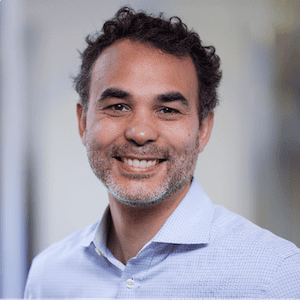-
Empowering OPIC: Why the U.S. Should Embrace Development Finance and Harness the Power of Impact Investing
The Overseas Private Investment Corporation (OPIC) supports projects in nearly 100 countries around the world, leveraging limited public investment to attract billions of dollars in private capital. And for 39 consecutive years, it has returned money to the Treasury, reducing the deficit by $2.6 billion over the past eight years alone. Yet it remains constrained in the types of investments it can make. Fran Seegull urges the U.S. to let OPIC better harness the momentum of impact investing.
- Categories
- Investing, Social Enterprise
-
The Curious Case of Myanmar: Can the Country Leapfrog to Digital Financial Inclusion?
Fueled by years of repressed demand, cheap Chinese phones, softening regulations and an aggressive push by the country’s mobile network operators, Myanmar leapfrogged from practically zero phones to almost exclusively smartphones. Looking at this stark contrast, a natural question arises – can Myanmar leapfrog from financial exclusion to "digital" financial inclusion, just as it did in telecom?
- Categories
- Finance, Technology
-
Three Reasons for the African Research Gap – And How to Close It
Sub-Saharan Africa’s population share will more than double in the next 50 years—from 13 percent to 25 percent of the world's population. Despite this growth, its research outputs lag far behind other regions, with just 2 percent of peer-reviewed publications coming from authors there. Center for Effective Global Action (CEGA) program manager Maya Ranganath explores reasons for the gap, and ways CEGA is working to increase the volume of high-quality academic research produced by scholars in the region.
- Categories
- Agriculture, Education, Health Care
-
Something Doesn’t Add Up: Improving Basic Math Skills Among Microentrepreneurs in Rural India
Running any business requires a basic knowledge of arithmetic. Entrepreneurs need to calculate change due on a sale, profits and loss, commissions on product sales, and interest rates on loans. If they can't, their business will likely struggle. As part of a study to identify whether basic math skills contribute to entrepreneurial success in rural India, Madura Microfinance assessed the numerical capabilities of microentrepreneurs. The results were surprising – and somewhat alarming.
- Categories
- Education
-
Making it Rain: Solar-Powered Irrigation and the ‘Household Productivity Ladder’
Solar energy can be put to many constructive uses in emerging market households, but SunCulture focuses on helping smallholder farmers move water. Why? Because it has the greatest impact on a key area: household productivity. Their CEO Samir Ibrahim shares the story of a SunCulture customer, whose experiences highlight the value of solar-powered irrigation to 2.5 billion farmers living on less than $2 a day.
- Categories
- Agriculture, Energy, Social Enterprise, Technology
-
The Longest Last Mile: Are India’s Poor Ready for Digital Financial Services?
With the Indian government working to transform the country into a digital economy, the focus of financial inclusion is heavily inclined toward digital financial services for all. But are India’s poor ready for this shift? Anoushaka Chandrashekar and Misha Sharma at IFMR LEAD argue that poor customers are far from reaching this stage, and that policymakers and practitioners should focus on access and usage, rather than introducing digital products that very few people use.
- Categories
- Finance, Technology
-
Exclusive Giveaway for NB Notes Readers: Free Chapter of Jed Emerson’s New Book
Along with curating NextBillion's top articles, jobs and events in an easy-to-read format, our weekly e-newsletter has grown to include something equally cool: free stuff! We have two giveaways this month, exclusive for NextBillion Notes subscribers: A free chapter of “The ImpactAssets Handbook for Investors," edited by Jed Emerson, and 1 free ticket to the Social Finance Forum, Canada's leading conference on impact investing and social enterprise.
- Categories
- Investing, Social Enterprise
- Tags
- impact investing
-
When Failure is Hard to Recognize: Facing Hard Truths about Microfinance
After decades of faith in the ability of tiny loans to transform people’s lives, quantitative research has revealed that microfinance rarely lives up to the hype. But in spite of their lackluster impact, microfinance projects have persisted – the question is, why? After seven years of observing various actors throughout the microfinance value chain, Erin Beck, an assistant professor at the University of Oregon, has an answer. She discusses how policymakers, MFI leaders, employees and even customers contribute to microfinance’s persistence.
- Categories
- Impact Assessment










